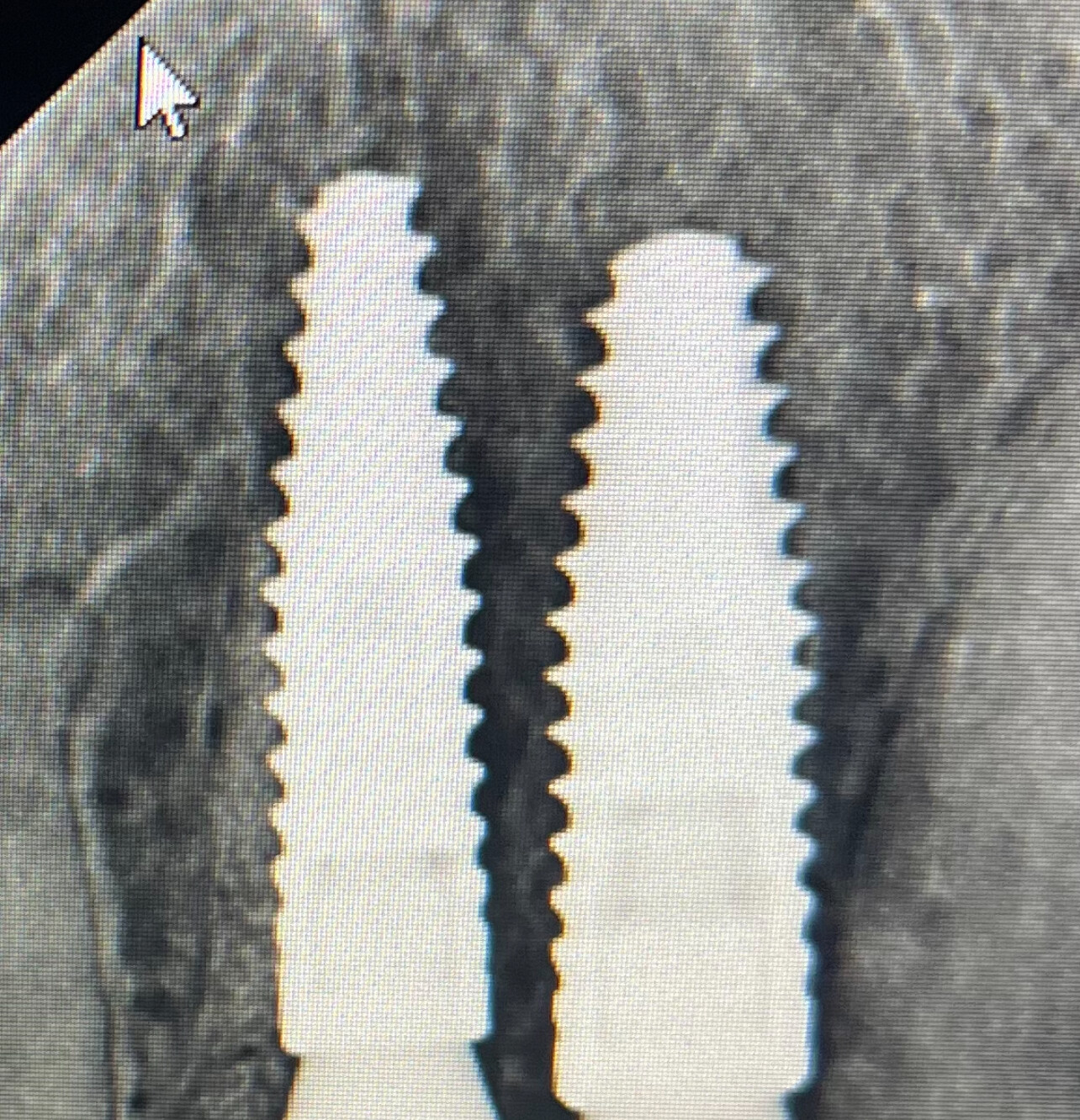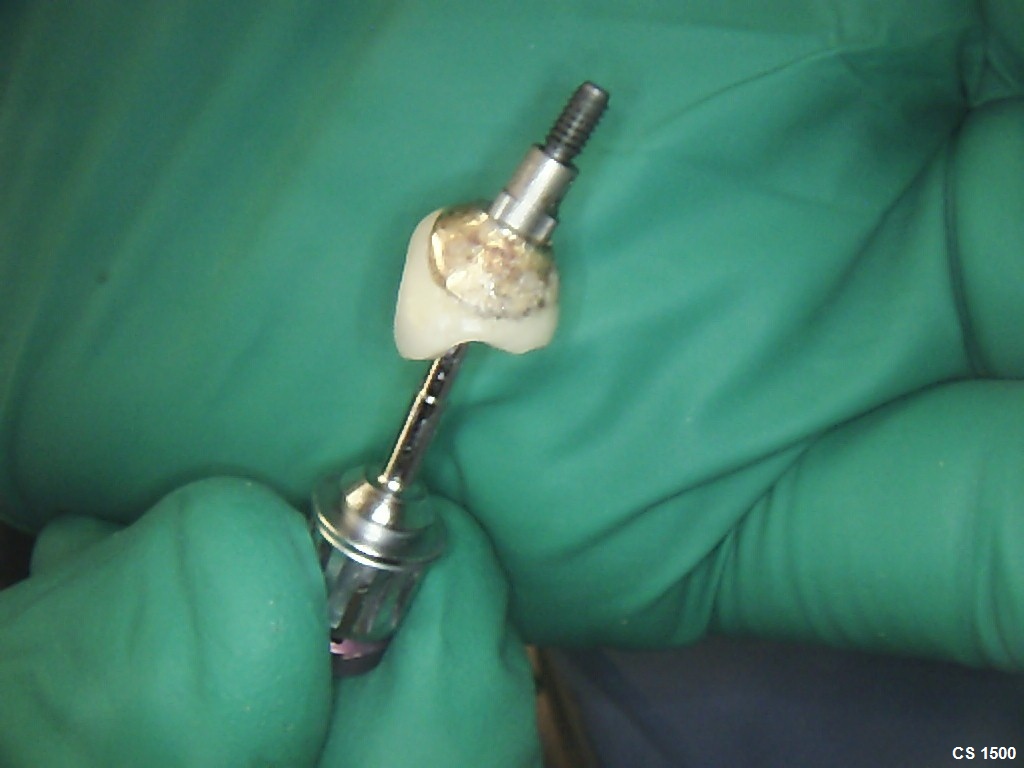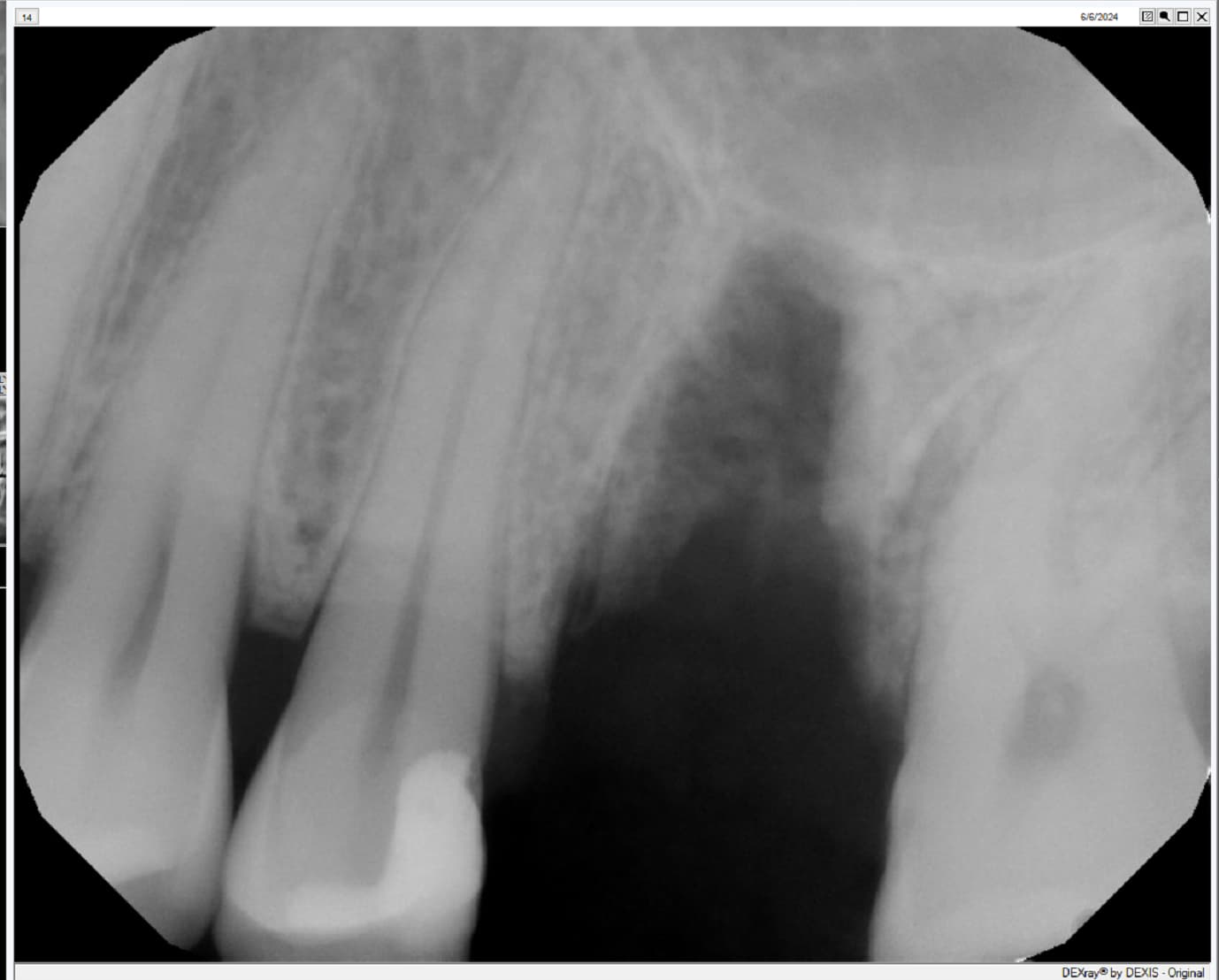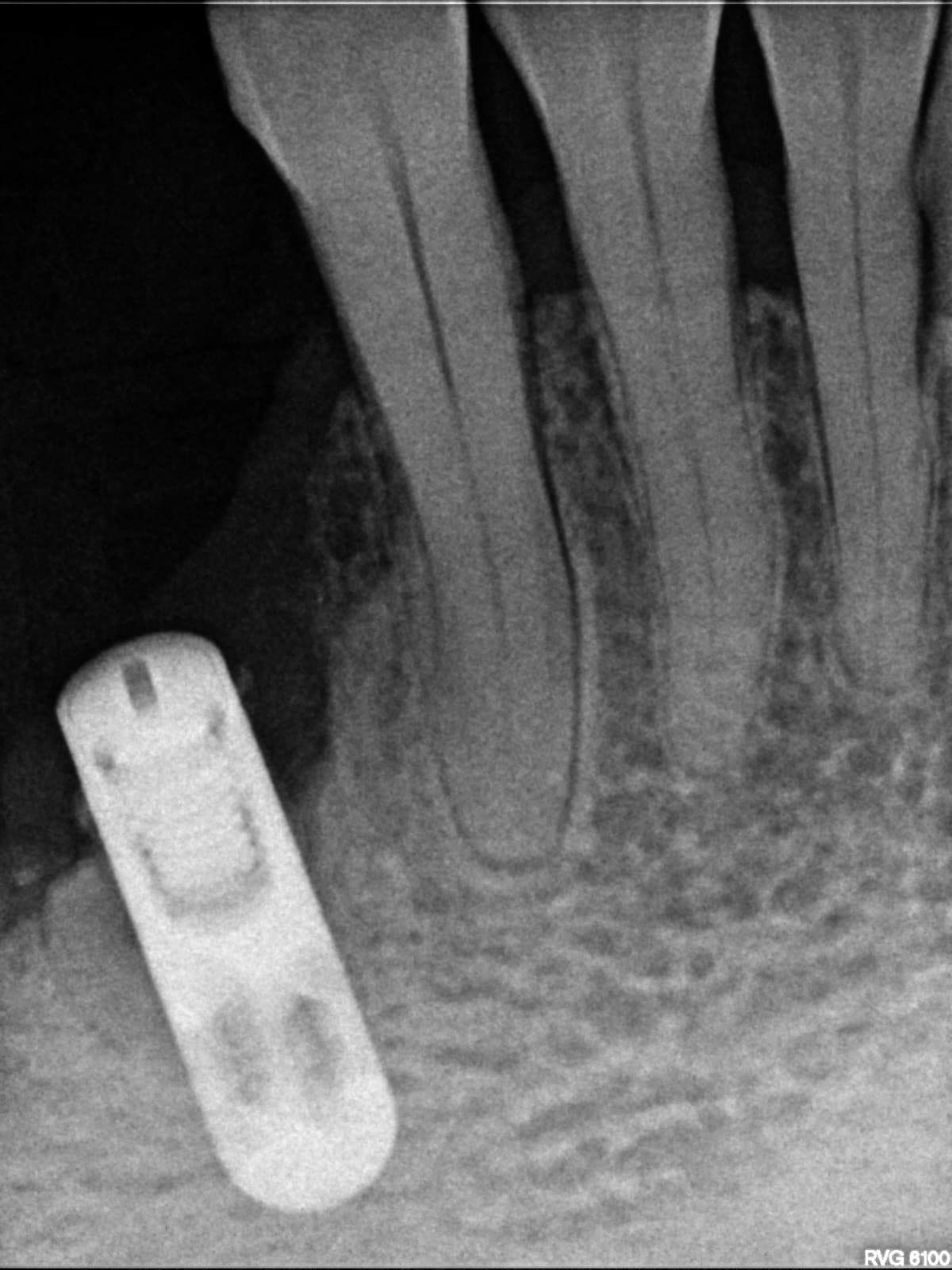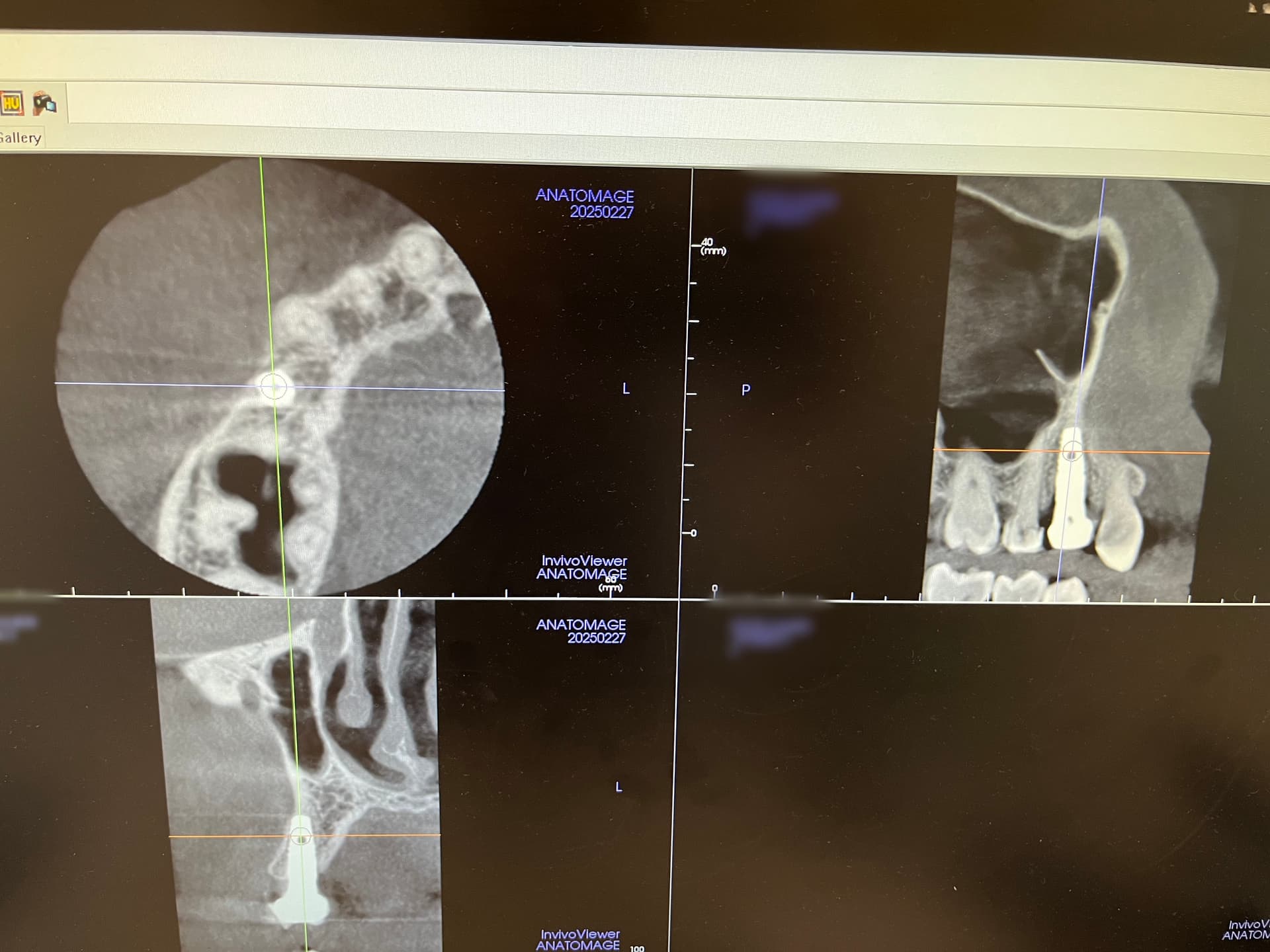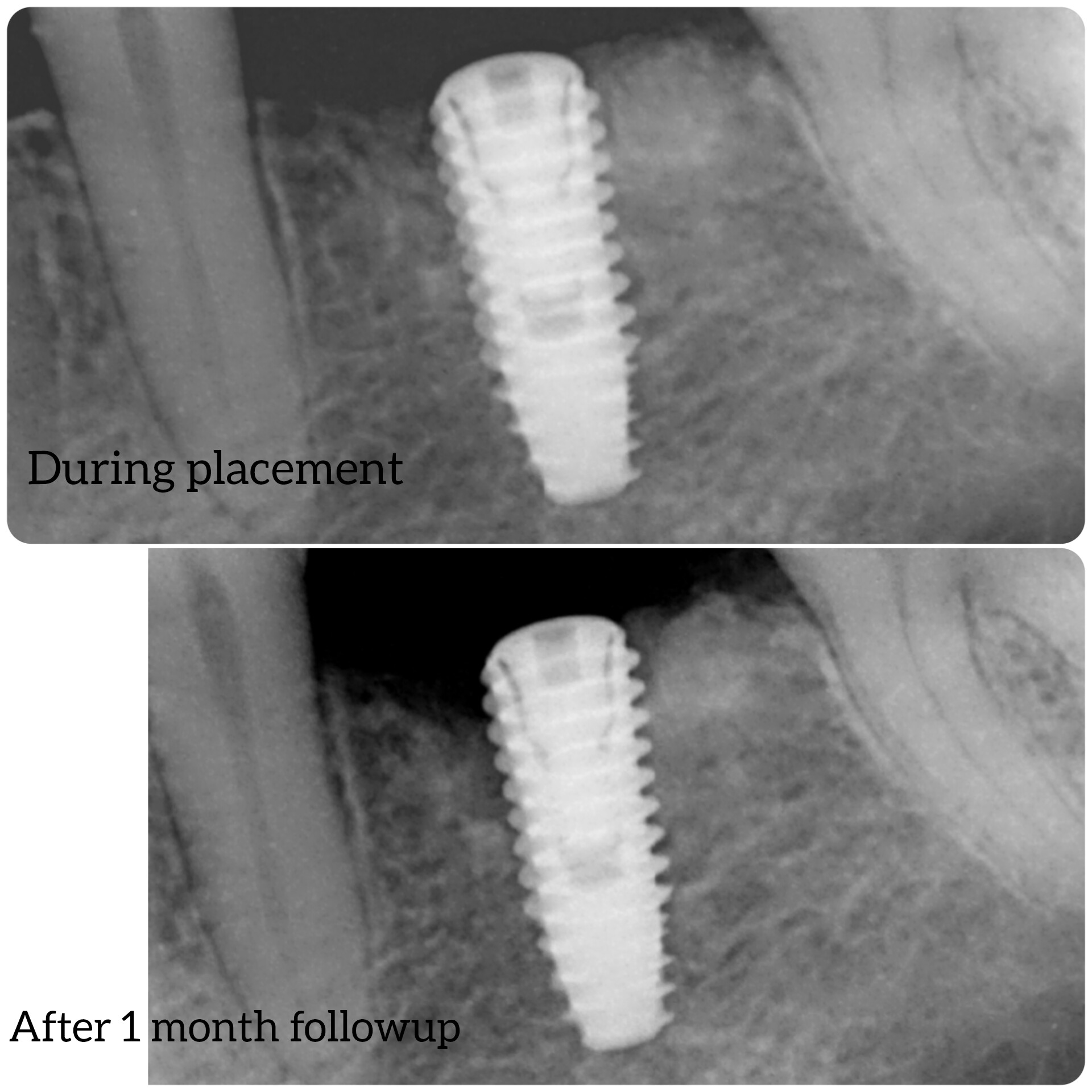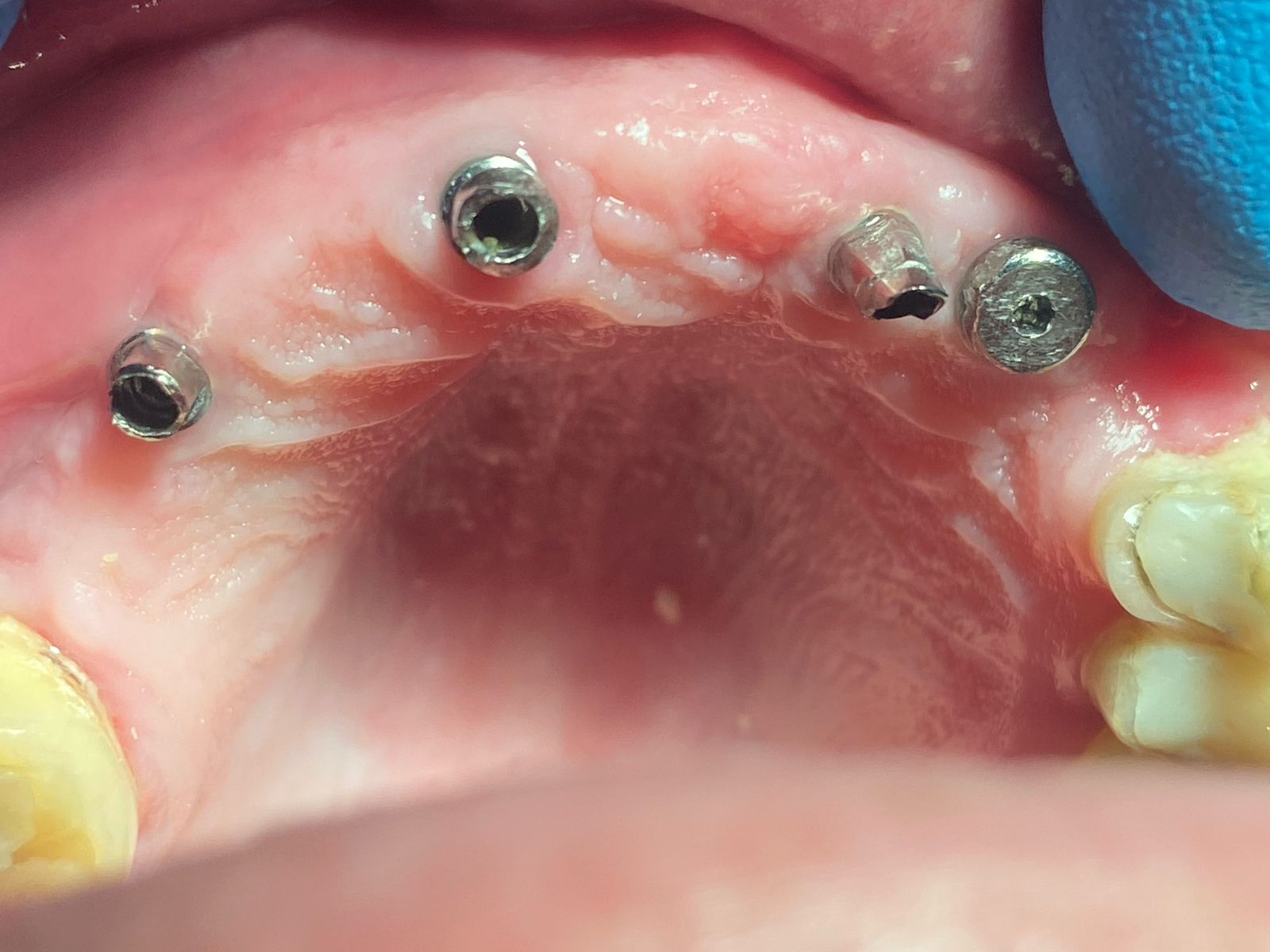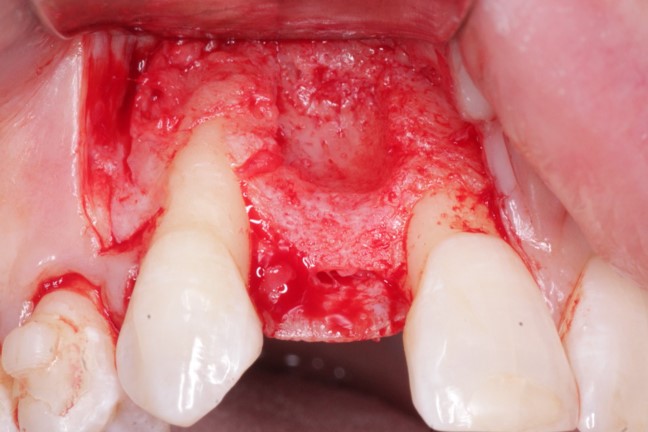Torquing Produces Pain?
Anon asks:
The surgeon placed a dental implant in #8 position and the surgery and healing were uneventful. When I went to torque down the abutment, the patient felt a sharp pain. I stopped torquing and the pain went away. I then cemented the crown.
Did I do the right thing here? Should I have backed out the abutment screw and let the implant heal longer? Should I have given antibiotics?
14 Comments on Torquing Produces Pain?
New comments are currently closed for this post.
Dr. Jim Cope DDS
10/9/2007
Anon,
Sharp pain on torquing an abutment could mean
1. ...the implant was not adequately osseointegrated and rotated. If your abutment has 'cylindrical symmetry' and you were able to cement the crown with a good fit to the adjacent teeth and occlusion, then the implant may re-integrate if the forces of occlusion are kept low for a few months, percuss in a few months.
2. ...the implant has a predominately connective tissue connection to the bone and the implant will fail eventually, percuss in a few months.
3. ...the implant site could be infected from an adjacent tooth with a necrotic pulp, test them!
4. ...the implant is impinging upon a vital structure such as the nasopalatine foramen or an adjacent tooth, take a pan or pa.
Good Luck
Jim
James C Cope, DDS
Pam Beamish
10/21/2007
I had 2 implants put in on Jan. 2004, I am now having the same problem I had with another tooth [so I thought] the tooth was removed but I am still having a lot of pain I think the implants are the problem. My dentist says they are ok.
Daren Rosen
10/23/2007
I have never seen a painful implant that was integrated. There are painful implants that cause no infection or bone loss, however if you anesthesize the area and apply moderate torque pressure they most often will unscrew their way out.
Ryan Dunlop DMD
10/23/2007
Many times final torquing of the abutment can cause irritation to the surrounding gingiva. Most labs will fabricate an abutment that tapers out more than a healing abutment, so as the abutment fully seats and clamps down, the patient can feel stretching and sometimes tearing of the peri-implant gingiva. This occurs more often with custom abutments, more often with external hex implants, and more often with flat-to-flat interface implants (such as Nobel biocare). I always torque slowly, giving some time for the soft tissue to adapt, and I have started using an implant system that incorporates a flared healing abutment (which better mimicks the final restorative emergence profile) and a platform switch. I haven't had any problems since.
Joe
10/25/2007
This problem may be eliminated by using the correct instrument to hold the abutment stable so that there is no torque on the implant. I was fortunate to learn of this in my training and always use it.
Dr SSenGupta
12/10/2007
It is my view that if at the time of prosthetics the imolant is mobile with "prosthetic torque" or painful during torque procedures less than 40-50N/cm
...you have a failure
Beyond this point it is wishful thinking ..the implant has failed
If you torque beyond this force depending on time and area you will cause a failure
SS
Dr SSenGupta
12/10/2007
It is my view that if at the time of prosthetics the implant is mobile with "prosthetic torque" or painful during torque procedures less than 40-50N/cm
...you have a failure
Beyond this point it is wishful thinking ..the implant has failed
If you torque beyond this force depending on time and area you will cause a failure
SS
Dan
3/18/2008
I am 39 years old, healthy non-smoker and I had implants to replace congenitally missing #7 and #10. The oral surgeon ran a very disorganized office. They did not communicate to me or to my dentist that they do not handle custom abutments until after the implant procedure, and my dentist had never done abutments either. The OS agreed to loan the tools to my dentist to install the custom abutments. When the time came for the abutments and crowns, a rep from the implant company was there watching and the dentist started with the implant on my left side, torquing quickly. There was much resistance and it hurt so bad that I almost passed out. She then stopped with that one and tried the right side implant, this time proceeding more slowly. It hurt less and clicked into the "35" spot in no time. When she went back to the left side implant, she seem to proceed more slowly. However, the implant began to spin. My question is, is it proper for the dentist to attempt to place abutments with no previous training? I had no issues with the implant healing (was placed in mid November 07) and I am wondering if the dentist may have not known when to "stop torquing".
Barbara
12/17/2008
While I had my implants uncovered, I had a sharp pain and while the implant had integrated, I was told and then treated for a bone infection. This required more bone grafts. How common is a bone infection when implanting teeth?
vancouver
1/18/2009
joe - what is the correct instrument to hold the abutment? I recently started having my assistant hold the abutment down with a curved hemostat, it seems to make this procedure much easier. Is there a better instrument to do the job?
Patient
2/22/2009
What about pain when torquing MDIs? Does it suggest failures too? I ask, because I had four done recently (can't afford traditionals). Of them, two caused moderate pain and two were, basically, painless. Thanks in advance...
R. Hughes
2/22/2009
Sometimes does have an implant that seems to integrate, but it has not done so. Thus, it appears to be a failure. It can be salvaged if splinted to adjacent implants and give it tincture of time. It has been my experience that this is more likely to occure in extraction sites esp. those that had a prior amalgam retro fill. I now avoid amalgam retro fill sites or I saucerize them and graft, then later place an implant. Another good trick is to place osteogen into the osteotomy prior to placing the implant. This I believe helps to create more bone at the bone to implant interface. Also using osteo-compressive methods at the time of implant placement helps ie. osteotomes, underpreperation of the site etc.
Louise Zintel
3/17/2009
I had 5 implants put in my lower jaw sometime in 96/97. I never had any problems in all those years.
In September 08 my dentist replace the teeth and when he put back the last embutment on the right side, I experienced a sharp pain. Also, after putting back the dentures and inserting the screw in that last post, I had another sharp pain.
In December I went back to explain I had a deep pressure pain in the jaw bone 24/7 like the screw was too tight and was pulling my implant upwards. My dentist took and X-Ray, all was fine. My gums were also good. He felt that most likely the pain was due to occlusion. He filed the teeth.
In January, after no relief, he loosened the screw in that post. Within 1 to 2 hours after I had a tingling, pulsating sensation that was followed by a numbness that lasted for 3 days. By that time, I no longer felt the deep pressure in the jaw bone but I still had a constant pain like a dull toothache 24/7.
In February, he removed that last screw for 2 weeks and it seemed to help. He then reinserted the screw back and the pain returned.
Last week, he removed the screw for good. It's better but I still have an ache.
We are now in March and this has been going on for 6 months. I'm 70 and this constant ache is draining me.
My dentist cannot explain the pain. He is as frustrated as I am about this. He's never had this problem before. He is a very experienced doctor and I have full confidence in him. He always explain things, listens and is willing to cooperate with me.
Does anyone have any suggestion on what to do next?
What went wrong? I intend to bring any information to my dentist.
Thank You.
patricia Brickell
4/15/2009
I feel the abutement on my implant has been torgued too tightly and any pressure applied to the tooth brings about defused pain though out my body that stays for weeks. I have had my final implant tooth 2 months now and the pain has not gone away but it subsides in the past by me not touching the tooth.
Has any one had the same experience.
If it contues my life's energy will be drained away. I am 65 years of age










